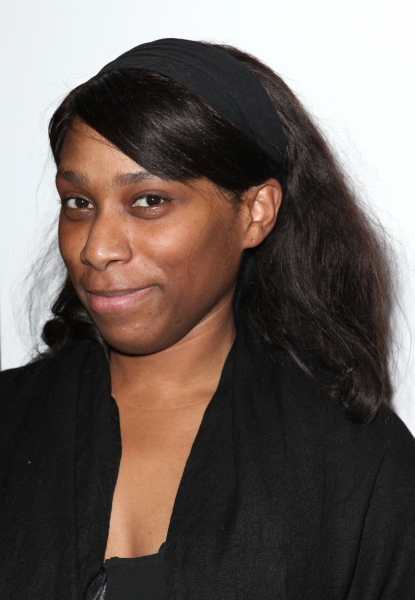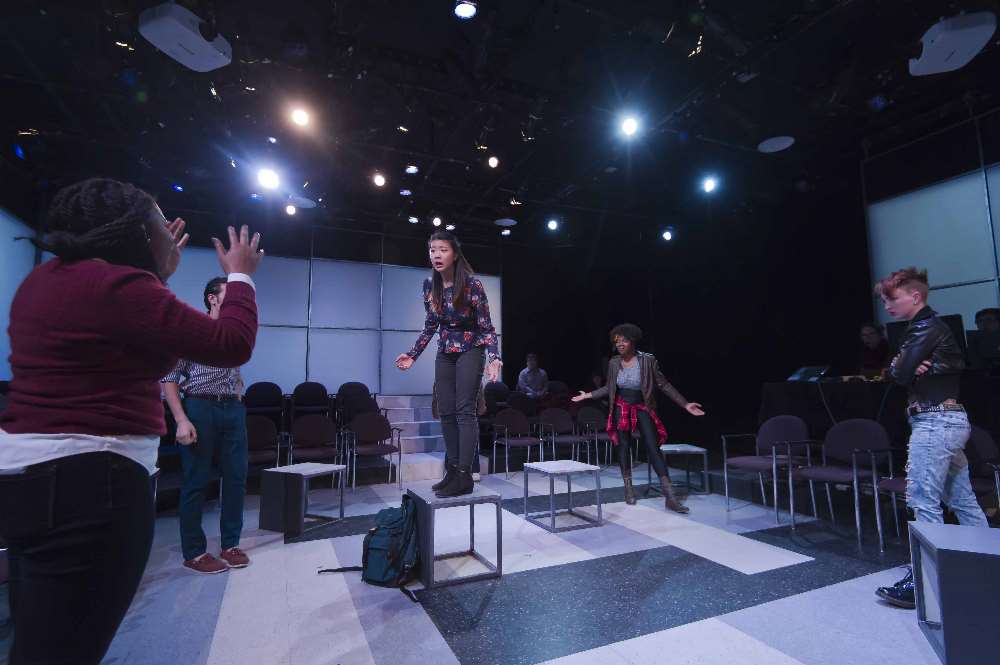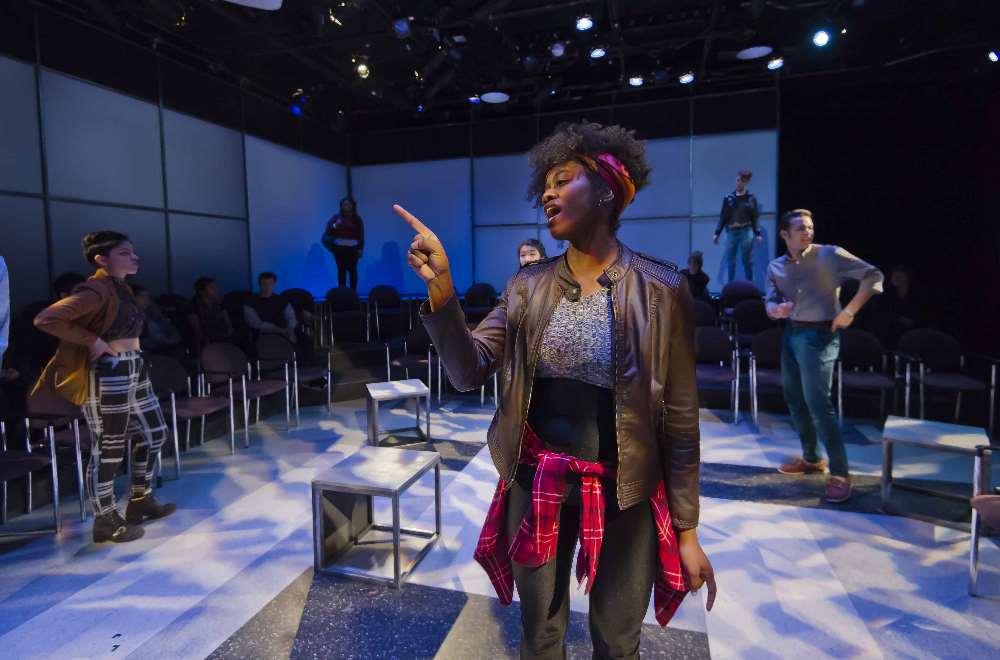NATIONWIDE: When performances for Kirsten Greenidge’s Luck of the Irish began in 2008, one moment always got laughs. In the play, members of a black family express gratitude that they live in a neighborhood (the play is set in an affluent, predominantly white area in Boston in the 1950s) where they don’t have to worry about getting shot. But in 2012, after Trayvon Martin was shot and killed by George Zimmerman, silence replaced the laughter.
Still, Greenidge doesn’t shy away from addressing racial strife in her plays. Her most recent effort, Baltimore, is about racism on college campuses. The play is part of the Big Ten Theatre Consortium’s New Play Initiative, which is dedicated to commissioning works by female playwrights to be produced at universities across the country. Baltimore is running through Feb. 28 at Boston University, in a coproduction from New Repertory Theatre and Boston Center for American Performance. It will also be produced at the University of Maryland (Feb. 26–March 1) and the University of Iowa (March 24–27). The play is also scheduled to be produced at the University of Nebraska and to have a reading at University of Illinois–Urbana-Champaign.
Greenidge was commissioned in spring 2014, not long before the death of Michael Brown in August in Ferguson, Mo. Several protests also occurred on several college campuses while Greenidge was writing the play, in particular a hate crime in a dorm at the University of Missouri which led to student protests and the eventual resignation of the school’s president. But she chose not to base the action of Baltimore on any one national news story; instead, she created a fictional event that could speak to national discourse.

“I was particularly aware with Baltimore how the context was changing so rapidly with national attention on these [race-related deaths],” Greenidge said. “So I had to be really careful with Baltimore about how I was treating these incidents in the play.”
Baltimore tells the story of Shelby Wilson, an African-American resident adviser for a group of freshmen at a college in New England. Shelby is focused on rebuilding her résumé after losing her job in the athletics department. But when a racist caricature is drawn on the dorm door of one of her black students, she is forced to reevaluate her naive belief that she lives in a post-racial society, and she must help strive for peace on campus.
The play references true events, including the riots in Ferguson, the Black Lives Matter movement, and the deaths of Brown, Martin, Tamir Rice, Freddie Gray, and Sandra Bland.
Baltimore was first workshopped at the University of Maryland, where students were required to take a special course on race if they were involved in the play. Greenidge rewrote the play following each workshop at various colleges, and even included some of the personal stories students shared with her.
The Maryland workshop took place one week after the unrest began in Baltimore around Gray’s death in police custody. But despite the title, the play is not actually set in Charm City. The play’s title is inspired by Countee Cullen’s poem “The Incident,” which describes how a racial slur affected an eight-year-old’s perspective of his Baltimore hometown. While writing the play, Greenidge kept the poem on her bedside table and read it before and after she went to sleep.
“I remember hearing it when I was very young, and it’s always stuck with me about how an incident—a racially charged incident—can really filter how you view an otherwise innocuous, innocent event or transaction,” Greenidge said of the poem. “And I think that’s particularly true if you’re of color.”
While many audience members may be aware of the more famous cases regarding race, Greenidge hopes to shed light on less familiar conflicts. In the play, a Latina character responds to the Black Lives Matter movement: “Where are the Latinos supposed to fit in all that? Or Native lives? They’re dying too!”
“In those communities, they’ve lost of lot of lives too in the same way,” Greenidge said. “And because that problem hasn’t been highlighted the same in the press, we don’t know those names the same way we know Michael Brown’s name [and] Sandra Bland’s name.”

The Big 10 Consortium’s New Play Initiative also requires female playwrights to create roles for women. There are six female roles in Baltimore, five of which are for actresses of color. The remaining three roles are for men, two of color.
The consortium will commission one play a year for three years, and each commission comes with $10,000 for the playwright. Any university in the consortium can produce the play royalty-free for up to three years. The other plays that have been commissioned so far include Good Kids by Naomi Iizuka, Twilight Bowl by Rebecca Gilman, and Dog Stars by Madeleine George
And just a mile away from Baltimore’s Boston production is Greenidge’s coming-of-age play Milk Like Sugar, running at Huntington Theatre Company through Feb. 27. But, with multiple productions running in a short span, Greenidge has no plans to slow down. More universities within the consortium are expected to schedule the play, and Greenidge hopes Baltimore continues past its Big 10 run, to encourage conversation.
“It’s not the be-all-end-all play about race,” she said. “There’s absolutely no answers about how to fix America’s problem with race.”


